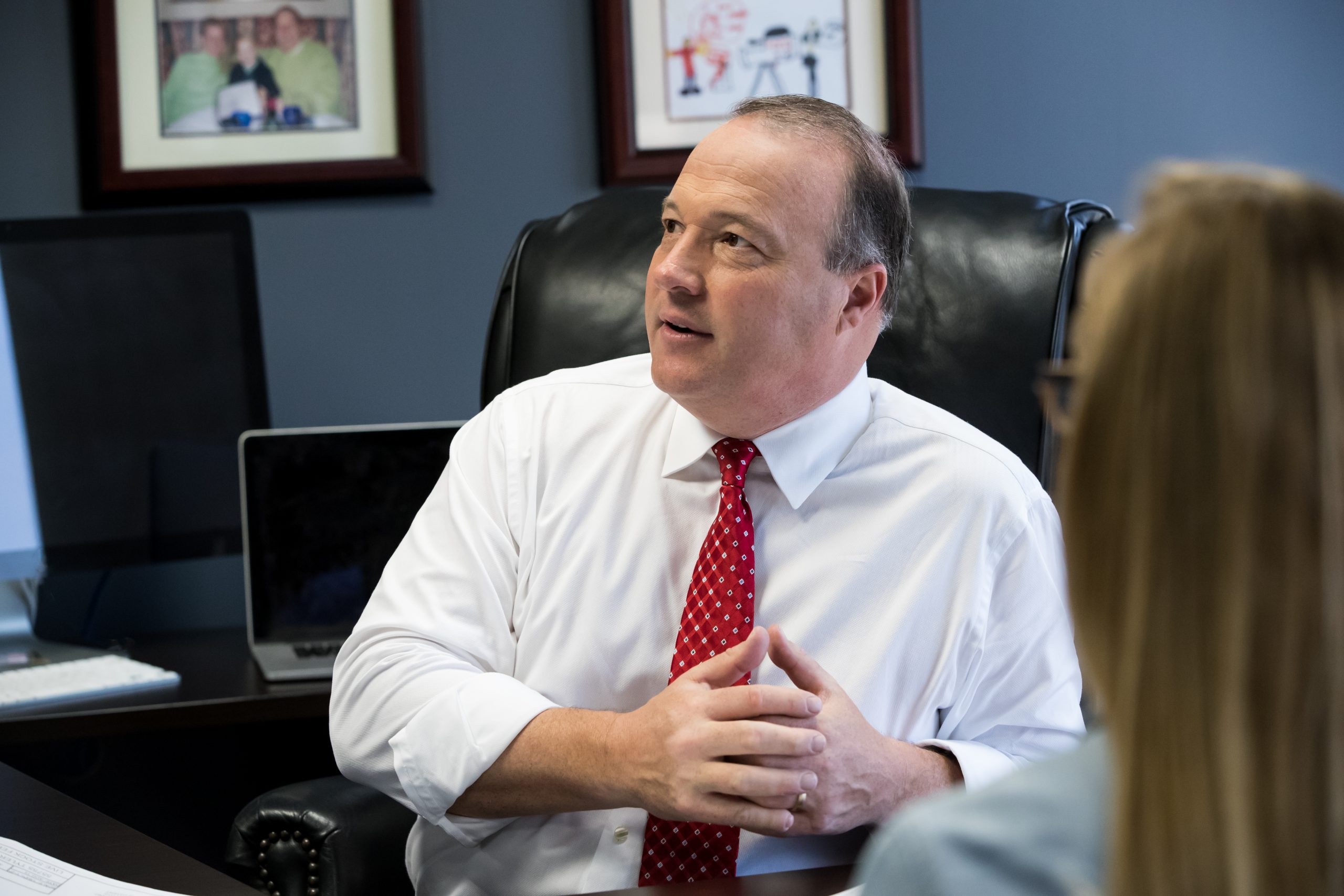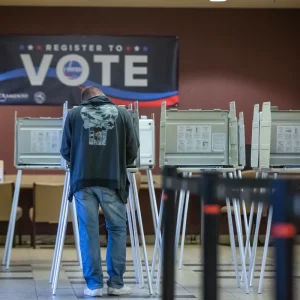In January, Republican congressional candidate Scott Baugh sat down with The Orange County Register’s Kaitlyn Schallhorn in preparation for this year’s primary election. She asked him a set of relatively standard questions—and Baugh gave a set of relatively standard replies: Baugh’s “common sense border policy” is that “we should have a tall fence and a wide gate.”
Things got interesting towards the end of the interview when Schallhorn asked about former congressman George Santos: “what is one thing Congress should take away from the former congressman’s expulsion from the House?” Baugh thought the question weak, and replied tersely, “this question is curious.” He then summarized the case. “Congress learned of Geroge Santos’ deceptive and likely criminal behavior after he was elected. He was expelled.”
Baugh and Schallhorn both missed the point. Schallhorn was too narrow in her inquiry: Santos was a symptom of American political society, not of Congress. Baugh then ran through a series of events. He concluded that Congress handled the Santos scandal well—that “there’s nothing left for Congress to do.”
Yet Santos did not teach politicians any new lessons, serving as a reminder of how effective political prevarication can be. Of course, Baugh could not have said that. Americans should have learned to be less eager to accept political narratives. Americans need to look for lies themselves when politicians mislead them.
Let’s then deploy this lesson to our treatment of Scott Baugh. For context, Baugh is running as a Republican in California’s highly contested 47th district against Democrat Dave Min. The district is currently represented by Democrat Katie Porter, who did not seek reelection as she bid for California’s open senate seat. Her campaign concluded after a loss in the primaries.
CA-47 encompasses Orange County, a former Republican stronghold. Races in Orange County have become more competitive as demographics have shifted. This race will demonstrate whether the district is actually competitive or if Porter’s electoral success was a temporal departure from the norm.
If we are trying to fish out political deceit in this election then Scott Baugh deserves inquiry. Who, then, is Scott Baugh? His interview responses are not too helpful. Neither are his campaign materials.
According to his website, he is “working to PRESERVE and PROTECT Our JOBS. Our NATION. Our VALUES” [sic]. His values are vague. Because of his vagaries, one must learn from the mistakes made with Santos. Instead of relying on Baugh’s words, let’s look at his actions. They speak volumes.
Baugh entered public life in 1995 when he won a seat in the California State Assembly. He became the leader of Assembly Republicans in 1999 and left the Assembly in 2000. Immediately afterwards he became a lobbyist for Manatt, Phelps, & Phillips, where he won a bid to take over Orange County’s lobbying needs. He was paid $20,000 a month in this position. Then he took over the Orange County GOP (OCGOP), which he chaired for eleven years. After he vacated that position, he made his first run for Congress. He ran in 2018, briefly in 2020, and again in 2022. Baugh has made a career in Orange County politics. It is when his career is assessed in its granularity that its motivating factors and guiding values become clear.
Scandal began in tandem with Scott Baugh’s political career. He was charged with four felonies and 18 misdemeanors in 1996 after it was alleged that he illegally backed a Democrat in order to split the vote of his opponent. He was arraigned in the case and even had a mugshot taken. Unfortunately, he persuaded a judge to seal the image. Eventually, the case was moved under the jurisdiction of the Fair Political Practice Commission which fined him $47,900 for nine violations of California’s Political Reform Act. Not not guilty.
His 1995 campaign did not mark his only flirtation with crime. In 2006, while Baugh was the chair of the OCGOP, 12 employees of a contractor working for the organization were charged with felonies. The case alleged that defendants were paid by Baugh’s organization for every person who they registered as a Republican. They tricked people into signing what they thought were petitions, and then used the signatures to register people as Republicans. In all, they committed 600 instances of fraud. Several were charged with felony fraud and served time in jail. Although Baugh was not directly implicated, he led the organization that retained the fraudsters. It was his responsibility to ensure that his contractors behaved within the confines of the law. His failure to do so marks his abject negligence. It is hard to believe that Baugh was merely negligent, but if he was, Orange County does not deserve a poorly informed leader.
It is clear that Baugh is willing to break the law to achieve his goals. What his goals are remains unclear—policy positions are not his strong suit. Policy, then, might not be his goal. His goal has been to accumulate personal power and wealth.
Scott Baugh’s career as a lobbyist did not end when he became the chair of the OCGOP. Instead, it took off. What is obvious is that Baugh’s clients did not retain him for his legal expertise. No legal expert would be implicated in crimes as often as Scott Baugh has been. Baugh sold access to his political connections to amass personal wealth and power.
While holding positions of political power, Scott Baugh represented companies that had financial interests in Orange County. The companies he represented scored lucrative contracts across the county with his help. This practice is not illegal—but it is concerning. As the chair of the OCGOP, Baugh exercised influence over many elected officials. Baugh likely deployed the influence of the organization that he led not for its own best interests but to protect the interests of his clients. Baugh has been successful in this enterprise—according to a 2018 financial disclosure, he has accumulated a fortune of at least $25 million. If elected to Congress, Baugh would be amongst its most wealthy members.
Baugh’s wealth is distributed across several assets that speak further to his fitness for office. According to his financial disclosures, he has several loans from the Federal Government on his farms. It is possible that he is interested in continuing to benefit financially from his positions. As a congressman, Baugh would both regulate and financially benefit from the Farm Service Administration. Baugh is both the lawyer for and heavily invested in Strathspey Crown, a private equity firm that has been accused of misrepresenting technology to attract investment (think Sam Bankman Fried or Elizabeth Holmes) and has a record of suing critics.
Baugh is not Santos. But how different are they? Baugh has proven throughout his career that his primary goal has been to increase his own power and wealth. There is no reason for him to change if elected to Congress.
Featured Image: Scott Baugh for Congress





Comments are closed.